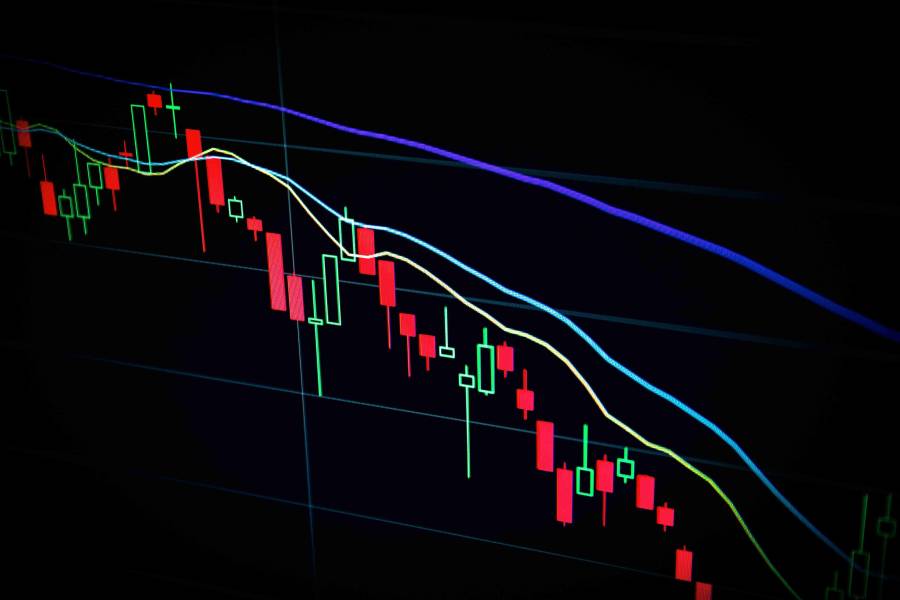Forex trading, also known as foreign exchange trading, involves buying and selling currencies on the global market. This market is the largest financial market in the world, with over $5 trillion traded daily. Forex trading has become increasingly popular due to its unique advantages over other markets.
In this article, we’ll explore the benefits of forex trading and compare them to other popular markets, such as stocks, futures, and options. We’ll also provide tips on how to get started with forex trading and discuss some of the risks involved.
What is Forex Trading?
Forex trading involves buying and selling currency pairs in order to make a profit. Traders speculate on whether a particular currency will increase or decrease in value compared to another currency. The goal is to buy low and sell high, just like any other type of investment.
Forex trading takes place on the global market, with trading occurring 24 hours a day, five days a week. This means that traders can participate in the market at any time, regardless of their location.
The Advantages of Forex Trading
1. 24-Hour Market
The forex market is a 24-hour market that operates for five days a week. This means that trading is continuous as long as there is a market open somewhere in the world. Unlike other markets, such as the stock market, which only operates during specific hours, the forex market allows investors to trade at any time, day or night. This flexibility can be particularly beneficial for those who work during the day or have other commitments that prevent them from trading during regular market hours.
2. Low Transaction Costs
One of the main advantages of forex trading is the low transaction costs. Unlike other markets, such as the stock market, there are low commissions, clearing fees, exchange fees, government fees, or brokerage fees associated with forex trading. Most retail forex brokers earn their profits through spreads, which is the difference between the bid and ask price of a currency pair. This means that traders can keep more of their profits and trade more frequently without having to worry about high transaction costs.
3. No Fixed Lot Size
Another advantage of forex trading is the lack of a fixed lot size. In other markets, traders or investors are often required to buy or sell assets in fixed quantities, such as shares of stock or contracts of a commodity. In the forex market, however, traders can trade any amount of currency they choose. This allows investors to trade with smaller amounts of capital and still achieve meaningful results. This can be particularly beneficial for those who are just starting out in forex trading or who have limited funds to invest.
4. High Liquidity
The forex market is the largest and most liquid market in the world, with an average daily trading volume of over $6 trillion. This high level of liquidity means that investors can buy and sell currencies quickly and easily without having to worry about the availability of buyers or sellers. This also means that the forex market is less prone to price manipulation than other markets, as it would require a much larger amount of capital to affect the price of a currency pair.
5. Leverage
One of the most amazing traits about forex trading is the ability to use leverage. Leverage allows traders to control larger positions with smaller amounts of capital. This can greatly increase the potential profits of a trade, but it can also increase the potential losses. While leverage can be a powerful tool, it is important for traders to use it responsibly and to understand the risks involved.
6. High Potential Returns
Forex trading offers the potential for high returns compared to other markets. While this potential for high returns comes with higher risks, traders who can make informed trading decisions and manage their risk properly can achieve significant profits in the forex market. This potential for high returns can be particularly attractive to traders who are looking for a more dynamic stream of income.
How Forex Trading Compares to Other Markets.
In today’s world of investment, it’s essential to have a diversified portfolio. While stocks have been a go-to investment for many years, Forex trading has gained popularity due to its unique advantages. In this section, I will discuss how Forex trading compares to other markets like stocks, futures, and options. I will also cover the benefits of Forex trading, the risks involved, and how to get started with Forex trading.
Forex vs. Stocks
One of the main differences between Forex and stocks is the way they trade. Stocks are traded on a centralized exchange, while Forex is traded in a decentralized global market made up of diverse market participants and also over the counter at forex bureaus and banks. Forex trading is also less regulated than stock trading, and Forex traders have access to much more leverage than stock traders. Additionally, Forex trading uses pairs, so the trade depends on the performance of two economies rather than trading a single stock. Currencies are more liquid than stocks, and they trade at all hours of the day, which provides more flexibility for traders.
Forex vs. Futures & Options
Forex, Futures and Options both involve trading on margin, but Forex has more flexibility in terms of trade size. Forex trades can be as small as 1,000 units, while futures contracts are typically much larger. Options can be used to hedge against potential losses, while Forex traders are subject to market volatility. Forex is also traded over the counter, while futures & options contracts are traded on a centralized exchange. Futures & Options contracts have standardized terms and are subject to regulations, while Forex is less regulated.
How to Get Started with Forex Trading
Getting started with Forex trading can be intimidating, but it doesn’t have to be. First, it’s essential to learn the basics of Forex trading, including the right trading mindset and trading strategies. There are many online resources available, including courses, webinars, and trading platforms. It’s also important to choose a reputable Forex broker who is licensed and regulated by a recognized authority in your country. When selecting a broker, consider factors such as trading platforms, fees, customer service, and educational resources.
Risks of Forex Trading
As with any investment, Forex trading involves risks. Forex trading is highly leveraged, which means that even small price movements can result in significant losses. Forex traders are also subject to market volatility, which can be unpredictable. It’s essential to have a solid understanding of risk management strategies, including setting stop-loss orders and using appropriate leverage.
Conclusion
In conclusion, forex trading is a 24-hour market that is available for five days a week, making it a flexible option for traders around the globe. Additionally, Forex trading has the advantage of; low commissions and or razor spreads depending on the broker. Another advantage of Forex trading is the absence of a fixed lot size, which means that traders have greater flexibility in their trading strategies. Moreover, Forex trading has a low barrier to entry, making it accessible to a wide range of individuals, including those with limited trading capital.
One of the most significant advantages of Forex trading is its high liquidity, which means that traders can easily enter and exit positions, even in large volumes. When comparing Forex trading to other markets such as stocks, futures, and options, Forex trading has unique advantages such as higher liquidity, 24-hour trading availability, and lower transaction costs.
If you are interested in starting Forex trading, it is important to understand the risks involved, including the possibility of losing money due to high leverage and market volatility. However, with proper education and risk management strategies, Forex trading can be a profitable and rewarding endeavor.
Frequently Asked Questions
How does forex trading differ from stock trading?
Forex trading and stock trading share some similarities, such as their speculative nature and the potential for high risk and high reward. However, forex trading is unique in that it operates on a decentralized market, is highly liquid, and has 24/5 trading hours. Stock trading, on the other hand, is often centralized, has more limited trading hours, and can be subject to specific country regulations.
How can I learn more about forex trading and its advantages?
There are several resources available to help you learn more about forex trading and its advantages. You can get important information in forex blogs such as Alltribe Capital and other resources such as BabyPips.com, which offers important educational content and tools to introduce new traders to the world of forex and crypto trading. Additionally, doing research and speaking with experienced traders can help you gain a better understanding of the unique advantages and potential risks of forex trading.
What are the unique advantages of forex trading compared to other markets?
Forex trading offers several unique advantages over other markets, such as high liquidity, low transaction costs, and 24/5 trading hours. Additionally, the forex market is highly accessible and offers the opportunity for both long and short-term trading strategies.






Leave a Comment